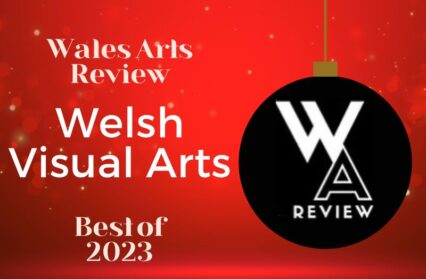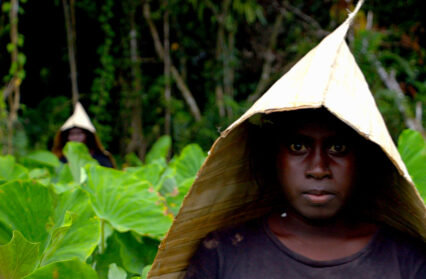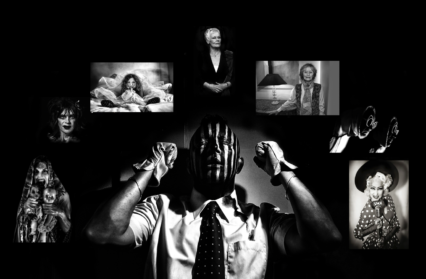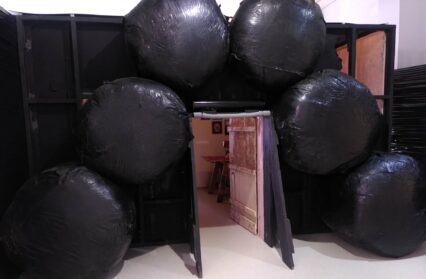The second annual Wales International Documentary Festival aims to bring high-quality documentaries from all over the world to the heart of Wales. Running from April 5th -7 th 2017, the festival will showcase documentary features and shorts, all of them UK premieres. Here Fedor Tot explains the importance of the festival and what to watch out for.
Maxime Cinema and the Blackwood Miner’s Institute, Blackwood
This year sees the second edition of the Wales International Documentary Festival returning to Blackwood. Held from April 5th-7th, WIDF brings together filmmakers and audiences from all over the world for a celebration of the power of documentary film-making, premiering features, shorts, and student films in the newly-reopened Maxime Cinema and the historic Blackwood Miner’s Institute, as well as hosting a number of networking events, Q&As, and discussion panels.
From its inception the festival has aimed to build bridges between Blackwood and the wider creative world, for the benefit of not just the town but the Welsh Valleys. Blackwood has a strong history that belies its small size, unfairly ignored by the larger UK. After all, a town that produced both the Chartists’ Uprising and the Manic Street Preachers must have something to it…
The lineup in competition for the feature films category this year is exceptional, with films ranging from inspiring individual stories to highly focused issue-based docs to light-hearted family portraits. These films hail from all around the world, telling diverse stories, stories that deserve to be told. The biggest issue facing quality cinema today is not its production, of which there is plenty, but its distribution. Without an audience, no film can make a difference. These films deserve to find an audience, more so than a Marvel superhero. Giving these films a platform is crucial to the festival’s mission. Below are just a few that are absolutely worth seeking out.
*
Atlantic, directed by Irishman Risteard O’Domhnaill, takes in three working-class fishing communities in three countries, all clinging to survival, battered in turns by oil conglomerates, overfishing by industrial tankers, and stringent fishing quotas imposed upon them by the state. Narrated by Brendan Gleeson, the film is at once both a highly taut, furious argument against human greed and state-wide short-sightedness, and a beautiful poem about the icy vastness of the North Atlantic. Granted, it’s not difficult to make an arresting image out of these landscapes, but Atlantic’s use of the fjords and rocky coasts of these places serves to remind us how, even in the most inhospitable reaches, there are human beings making a living out of simple means and who, were it not for larger forces, would be entirely content. It’s a recurring problem of industrial nations; how can a resource-hungry society protect the vulnerable, whilst keeping its heritage and traditional trades from dying out. One is reminded of The Edge of the Word, a 1937 film by Michael Powell, that most English of directors, responsible for A Matter of Life and Death and The Red Shoes. That film told an almost identical story 80 years ago, using the sheer cliffs of Scotland’s Northern coasts. Neither film provides easy answers, but both ask difficult questions, and for this writer Atlantic is undoubtedly one of the highlights of the festival.
Not all the selections at WIDF have such a wide scope. Johan Eriksson’s Hoda’s Story and Lara Stolman’s Swim Team both tell small, but powerful, stories of triumph over adversity. The former is about Hoda Darwish, a 12-year-old girl from Gaza, who was stuck in the head by a stray bullet and blinded whilst at school. Whilst Hoda’s Story is certainly not a comforting watch—its director followed Hoda on and off for 12 years, and her refusal to accept that there is no cure for her eyesight leads to her struggling with depression—Hoda herself is an incredible character, articulate, open, and intelligent, always willing to be honest about herself. As Eriksson (a veteran documentarian who has also filmed in South Africa, Yugoslavia, and Rwanda) describes, “I just trained the camera on her, and she invited people to take part in her world”. She is a documentarian’s dream, and Eriksson quite rightly lets her carry the film despite all the challenges she faces.
Swim Team is no stranger to difficulty either, although it is altogether a more humorous and warmer film, about an all-autistic swimming team in the New Jersey, formed after parents had had enough of their children being isolated at school. Alongside the success of the Oscar-nominated documentary Life, Animated, about an autistic boy who learns to communicate via his love of Disney films, there is certainly a recent change in how filmmakers are responding to autism, infinitely more humane and emphatic than the glib and reductive representations available in Rain Man or the recent Ben Affleck vehicle The Accountant. Film’s ability to engender empathy in its audience is crucial in this respect, and in allowing its three central swimmers to speak for themselves about their hopes and fears, Swim Team paints a multifaceted and crowd-pleasing portrait of family life in the face of stigma and the casual indifference of state services in helping such families. The ‘can-do’ optimistic attitude exhibited by the families is uniquely American, but Swim Team’s soul is universally empathetic.
The festival lineup doesn’t just include films that focus on serious issues; there is space also for entertainment and more eccentric stories. The King and Dai tells the story of the Porthcawl Elvis Festival, Europe’s largest Elvis Tribute Festival. For one weekend every year, the otherwise sleepy seaside town turns into a celebration of all things Elvis, attracting fans and Elvis impersonators all around the world, culminating in a fascinating stew of cheesy kitsch and utter sincerity. Directed by South Wales-based David Barnes, what begins as a light-hearted portrait of the festival soon turns into an engrossing investigation; bickering and bitter fall-outs between former organisers, grapevine-rumours and chaos, throughout which Barnes attempts to deliver a coherent narrative and figure out what on Earth is going on. The festival emerges as some kind of strange metaphorical parallel with the King himself: an innocent start, buoyed by great initial success and enthusiasm, followed by all manner of backstage mayhem once things start bloating. Even if you’re not an Elvis fan, there’s still something magnetic about the film’s mix of cheese and humanity. And of course, that excellent title encourages thinking of more Welsh-based film puns (The Bridge Over the River Dai! A Fish Called Rhondda! Lost in Treforest!).
And this is just scratching the surface, a small example of just some of the feature films premiering this year at the festival that this writer has been lucky enough to have early access to. It bears repeating: these films tell stories that deserve to be told, and that deserve to be seen.
Fedor Tot is a Newport-based independent film critic, writer and volunteer at this year’s festival.












